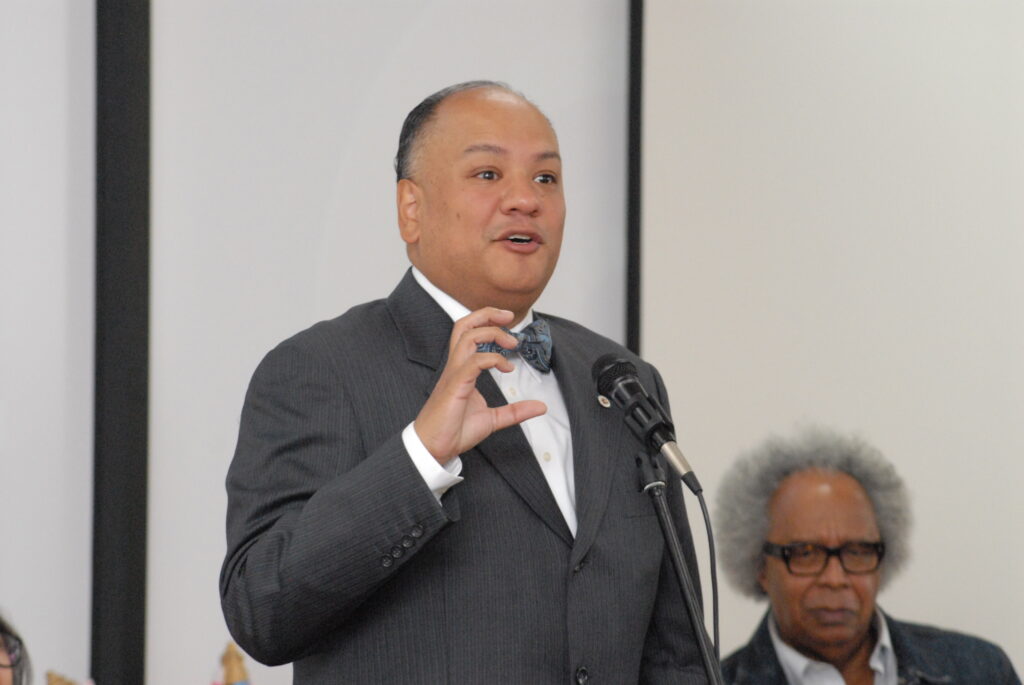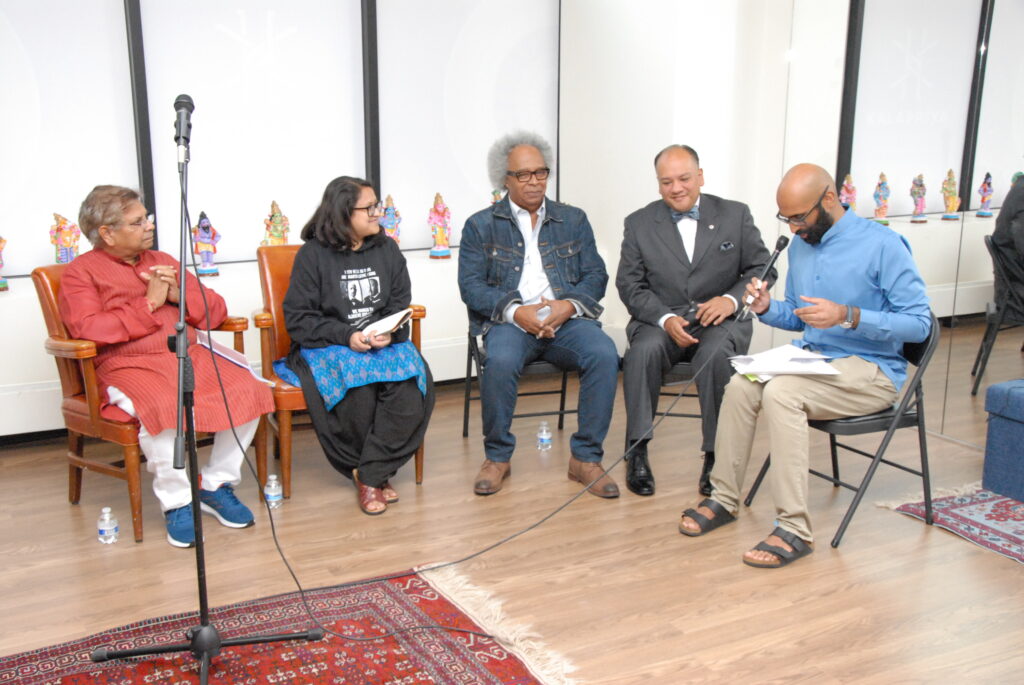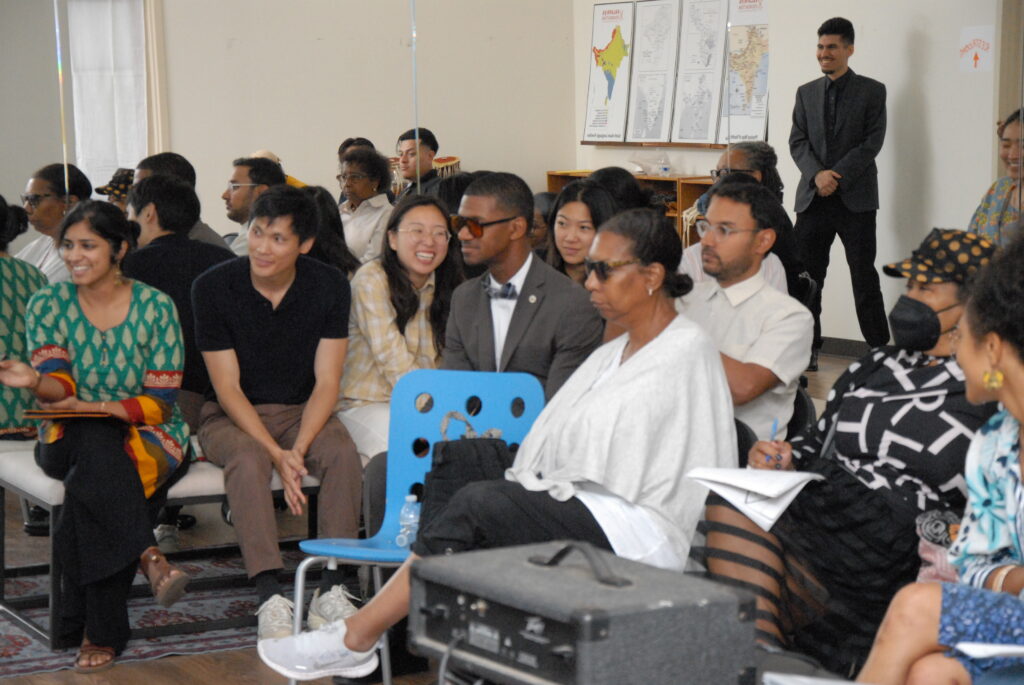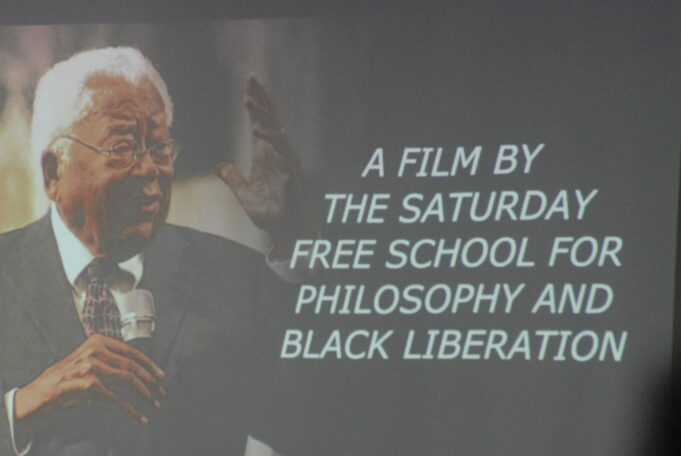CHICAGO—The Reverend James Lawson played a pivotal role in the construction of the Civil Rights Movement, working alongside the Reverend Dr. Martin Luther King, Jr. On August 16 in Chicago, the Saturday Free School for Philosophy and Black Liberation hosted an “Evening Honoring the Life and Ideas of James Lawson and Discussion About Nonviolence for Our Times” at the Kalapriya Center for Indian Performing Arts.

The program began with a welcoming address by Mridu Sekhar, the president of the board at the center, who gave a brief history and background on Rev. Lawson.
Meghna Chandra, from the Saturday Free School for Philosophy and Black Liberation, shared a quote from Rev. Lawson imploring the United States to give money used for war and the military to some of the nonviolent religious people, and in a decade a different society will have been produced.
“Reverend Lawson has been called ‘The Architect of the Civil Rights Movement in America’ and the life that he lived and the ideas that he stood for, are absolutely necessary for our times in this moment,” Meghna Chandra said.
According to the website of Baldwin Wallace University, where he studied philosophy, Rev. Lawson was a leader in the Southern Christian Leadership Conference and a key advisor to Rev. Dr. King, who called him “the leading theorist and strategist of nonviolence in the world.”
Rev. Lawson was also an early mentor to the late civil rights leader and Congressman John Lewis, the website noted.
Due to health issues, Reverend Lawson, who is in his early 90’s, could not attend the event. However, to demonstrate the importance and urgency of his work, the Saturday Free School put together an impactful documentary, led by Neha Chivukula.
During the introduction of the documentary, Neha Chivukula, the documentary’s composer, shared a brief summary of the connection between the Rev. James Lawson, India, and (Mahatma) Gandhi. Reverend Lawson lived as a missionary in India from 1953 to 1956. While in India, he was profoundly influenced by Gandhi’s principles and practice of nonviolence.
After viewing the documentary, “Claiming the Gift of Humanity: A Tribute to Rev. James Lawson,” the audience heard words from panelists, which included: Ram Mohan Rai of the Gandhi Global Family in India, Student Minister Abel Muhammad of the Nation of Islam, and Dr. Anthony Monteiro of the Saturday Free School. The audience heard a few words from each of the panelists uplifting the momentum of nonviolence.
Although she was not officially a panelist, Purbha Chatterjee translated for Ram Mohan Rai from Hindi into English. The panel discussion was moderated by Jahanzaib Choudry of the Saturday Free School.
“Martin Luther King, (was) not fully appreciated in our time. Often seen as less than a revolutionary, most times seen as an assimilationist, as a person who existed for a moment in history,” Dr. Monteiro said. “The divine is in each of us, those who are looking for the Divine in the sky are looking in the wrong place.
In our society, most of us are looking in the wrong place because we do not see what is in each of us; because if we knew what was in us, we would know that we can change this society.”
Dr. Monteiro also extended condolences to the Nation of Islam for the loss of an angel, Brother Minister Jabril Muhammad. “That was a tremendous loss, and I know the Honorable Minister Louis Farrakhan feels deeply,” he said.
“That story is very important for us to know about. I read Minister Jabril in The Final Call newspaper for many, many years. I did not know that he was both a witness to the Most Honorable Elijah Muhammad and the Honorable Minister Louis Farrakhan.
Minister Farrakhan was introduced to his purpose through Brother Jabril, and that purpose was to rebuild the Nation of Islam, (a) great organization. What the Nation of Islam means to the Saturday Free School, words just cannot express it. But again, I would like to express my condolences.”

During the event, Ram Mohan Rai shared insightful words from Gandhi and Student Minister Abel Muhammad shared the importance of investing in people.
“We could never really heal because the system doesn’t change. The problem in the world today is not that people don’t recognize that things are all messed up. Everything is messed up, that is why there is so much division. We keep changing people in political office, but feeding people into the same system,” the student minister said.
“We keep altering educational tempos that we want people to reach, the economic maneuvers that we think will improve things, and no matter how much we do that, we keep getting the same results, worse results.”
Student Minister Abel Muhammad continued, “People are willing to invest in buildings and beautify them, but that does not change people. What would be a better investment would be to take that money and invest into human beings. We could get rid of poverty; we could get rid of want; we could get rid of war.

Wars exist not because there is a lack of anything on the planet. The wars exist because there are people on the planet who rule, and their rulership is based off of a wicked idea. The problem is not in our lack of resources except the most valuable one, our thinking.”
Purbha Chatterjee from Philadelphia Saturday Free School said the program consisted of “a very important conversation to have because the time that we live in, there is violence and war is the norm.”
Others agreed. “The program was quite moving. Minister Abel talked about ideological struggles and the importance of ideas in this critical time,” Neha Chivukula said.
Deacon Vincent Price from the Black Star Project echoed the positive sentiments.
“This was an awesome conversation on Dr. Lawson and the great work that he has done and is doing,” Deacon Price said. “I took a lot of notes, and I can’t wait to get back to the Black Star Project and share with the young people.”
Meghna Chandra acknowledged the presence of the Nation of Islam.
“We are so honored to have the Nation of Islam here because you don’t find more principled, powerful, and brilliant people today. I think what Minister Abel brought was really, really important, especially in the discussion of what nonviolence means today. I just want to thank the Nation of Islam.
I’m going to be pondering this for a while. It touched me deeply. This is the kinds of conversations that don’t happen because the principled people who should be talking to each other don’t get the opportunity to speak,” said Meghna Chandra.
“I’m glad we have a platform. People have spent their lives struggling against White supremacy.”
(Shawntell Muhammad can be contacted at [email protected].)













